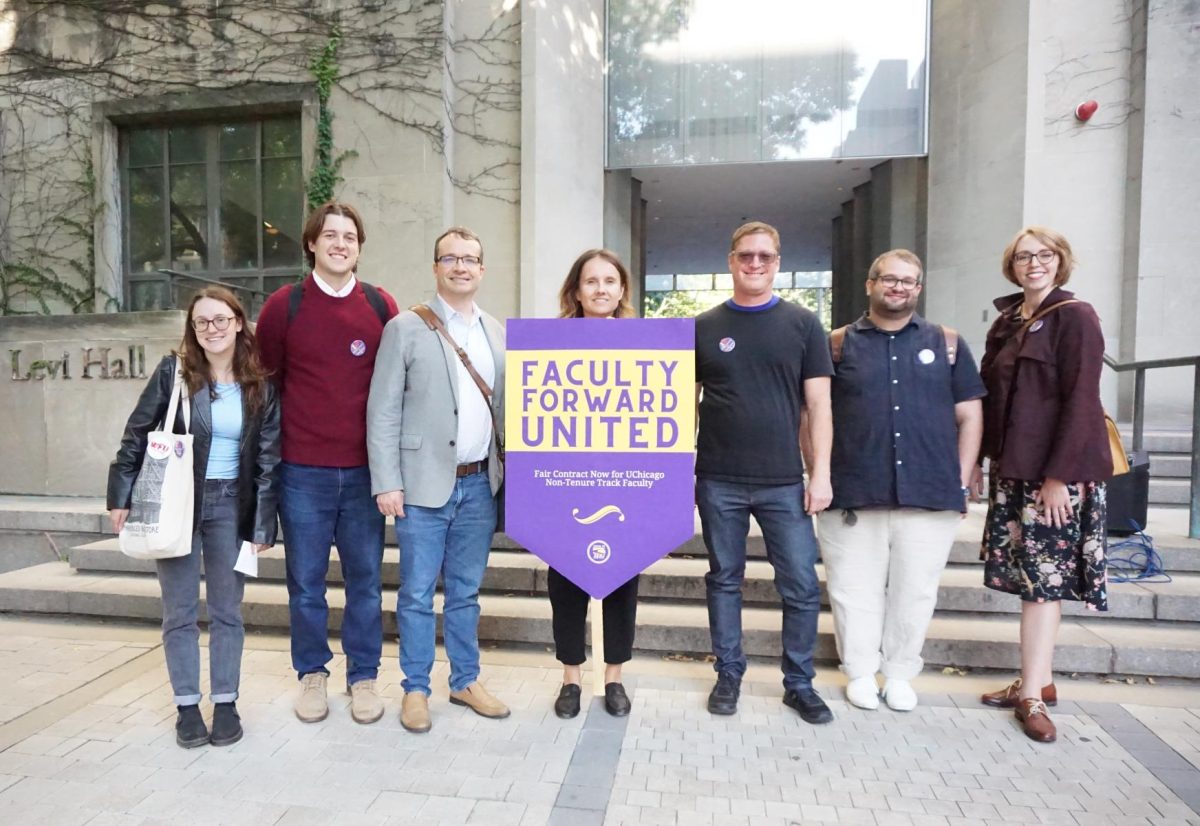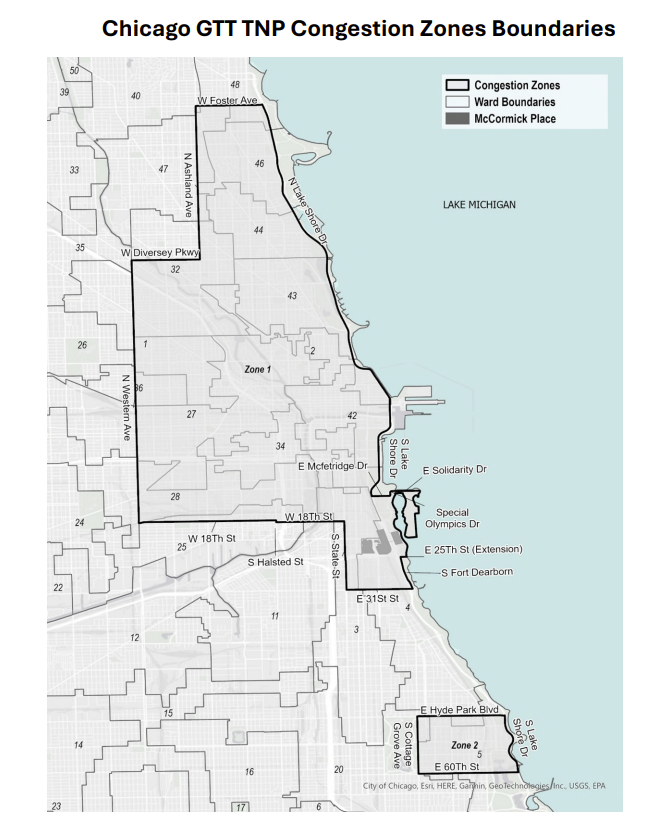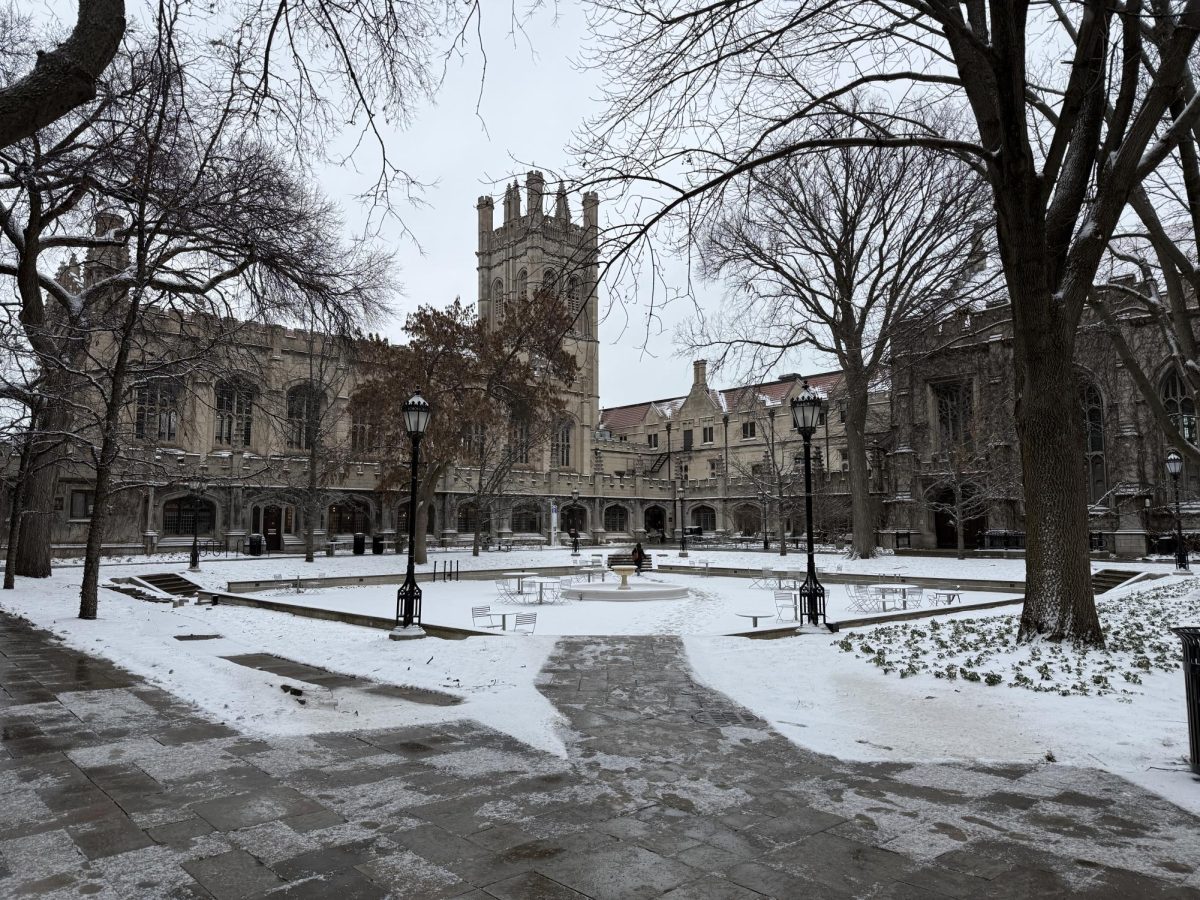Faculty Forward, UChicago’s non-tenure-track faculty union, reached a full tentative contract agreement with the University after a 12-hour bargaining session last Friday. The deal—covering the contracts of over 500 lecturers, instructional professors, teaching fellows, professors of practice in the arts, and writing specialists—comes after months of negotiations, 29 bargaining sessions, and growing momentum towards a possible strike. Key wins for the union include a five-year raise package that exceeds inflation rates, benefits parity, visa sponsorship, and enhanced job security for its most vulnerable members. The ratification vote is scheduled for the coming weeks.
Negotiations for Faculty Forward’s third collective bargaining agreement with the University began in early spring of this year. Increased compensation, visa sponsorship, and benefits eligibility for non-tenure-track faculty and writing specialists are the main priorities of this bargaining session. The union also received assistance from Service Employees International Union (SEIU) Local 73, a union representing more than 31,000 workers in public service.
While the two sides made notable progress on issues such as academic freedom and protection from harassment, union leaders grew “frustrated” by early October over the administration’s limited response to economic concerns. This frustration led to a rally in early October, during which union members delivered a petition to the University. Although the administration confirmed receipt of the petition, Faculty Forward Secretary Tristan Schweiger reported that “not much” progress followed.
Still dissatisfied with the University’s reaction to its demands, Faculty Forward began circulating a strike authorization petition among its members on Tuesday, October 22. Over several all-member meetings, union leaders presented the petition as a necessary action to apply pressure on management, emphasizing it as a last resort measure to secure fairer contract terms.
“We were at a position where management was not moving enough on the top-line issues, most centrally compensation,” Schweiger explained in an interview with the Maroon after the tentative agreement had been reached. “We knew that we were not going to get the deal that our members needed if we were not willing to bring some pressure.”
By Friday, November 1, nearly 90 percent of active union members supported giving Faculty Forward the authority to call a strike. “Overall, it was a very quick process, and people were very enthusiastic,” Faculty Forward co-chair Jason Grunebaum said. “We all decided that we were willing to fight for where we wanted to be.”
Faculty Forward leaders also mobilized support beyond their membership by engaging students, faculty allies, and the broader University community in a parallel outreach campaign. The union gathered more than 500 signatures from students and alumni in solidarity with their cause.
Compensation was Faculty Forward’s top priority going into the final bargaining session on Friday. The union argued that faculty salaries had not kept up with inflation, leading to a 10 percent reduction in purchasing power since the previous contract was signed in 2019.
At the Friday meeting, the University answered the union’s demands by proposing a 25.1 percent pay raise over five years for non-tenure-track faculty across the board. This provision not only compensates for inflation but also begins to close the 18 percent pay gap between UChicago non-tenure-track faculty and their peers at similar Ivy Plus institutions.
“This is a huge victory, especially given the uphill battle we had fighting the austerity narrative that management has been pushing for two years,” Schweiger said.
While the five-year deal is longer than the union had wanted, Schweiger explained that the union was willing to “meet management on that if they addressed in substance our material needs.”
The bargaining committee also secured significant benefit enhancements for union parity, including parity with tenure-track faculty on tuition benefits for faculty children and a new childcare allowance of $1,000 per quarter. Additionally, paid leave for professional development—equivalent to one quarter—has been introduced, along with H-1B visa sponsorship for all instructional professors.
Throughout the bargaining sessions, Faculty Forward strongly focused on improving conditions for the union’s “most precarious” members, such as per-course lecturers, teaching fellows, and writing instructors, who received drastically lower pay and benefits than other faculty groups.
“The part time and per-course instructors historically have been the most exploited, the most dispensable and disposable [faculty group] in this university and across academia. Sometimes they would actually be teaching many courses and still get paid per-course with no benefits,” Dmitry Kondrashov, a bargaining committee member, said. “This is actually one of the original missions for our union in general—[this] fight against the precarity that is spread across academia.”
Writing specialists were only recently awarded access to the union’s benefits in May 2023. Earlier in this negotiation process, Faculty Forward had secured a significant win by successfully advocating for the reclassification of writing advisors in the creative writing and social science departments from part-time to full-time employees. According to Faculty Forward, this adjustment would provide better job security and grant them access to full-time benefits.
Friday’s bargaining session further materialized some of Faculty Forward’s key demands in this space. Teaching fellows received an immediate 17 percent pay raise and a 34.9 percent raise over five years. Writing specialists, writing and research advisors, and lecturers received similar raises to address their respective financial disparities.
“They are getting a much higher percentage raise because they needed it,” Kondrashov said.
In addition to pay increases, Faculty Forward obtained improved benefits and job stability for its most vulnerable members. For example, the new contract will establish expectations of more equitable advising loads and precept capacities in MA programs.
The union also secured a seat on an advisory board for the restructuring of the writing program, the details of which are still being finalized by the University. “[We wanted to] provide as much security as possible for the writing instructors in the face of a still very murky restructuring process that could potentially leave some of the writing faculty without jobs,” Grunebaum said.
“Non-tenure track faculty have a right to a seat at the table as those decisions are made,” Schweiger added, referring to the restructuring advisory board.
While the new contract represents significant progress, Faculty Forward acknowledges that some significant issues remain. For example, although the pay raise has narrowed the gap, compensation for non-tenure-track faculty at UChicago still lags behind peer Ivy Plus institutions.
Union leaders also pointed out that certain part-time appointments, such as Lecturers classified as L2s, still face inadequate compensation. “L2s, even with our very strong [pay] increase, are still going to be making substantially less than a graduate student stipend. That burns me a little bit, to be honest,” Kondrashov said.
Nevertheless, Faculty Forward remains optimistic about the contract’s overall impact. “In aggregate, we definitely felt that this was a deal we could take to members with an enthusiastic recommendation,” Schweiger said. The tentative contract now heads to a ratification vote in the coming weeks among the union’s members.
Kondrashov expressed gratitude to all members of Faculty Forward, as well as to students, allies, and SEIU representatives, for their support throughout the seven-month negotiation process. He also extended thanks to the opposing side, stating, “I think that [the University] bargained with us fairly, and in good faith. In the end, I think they worked hard to come up with a deal that we could live with and bring to our [members].”
While the next contract negotiation is five years away, Faculty Forward plans to continue its work in the interim, focusing on enforcing the new contract terms and providing support for its members. The union also anticipates celebrating its tenth anniversary next year.
“And now,” Jeremy Schmidt, a bargaining committee member said, “we’re going to grade papers and sleep.”
In a statement to the Maroon, a University spokesperson acknowledged the state of the negotiations. “We appreciate SEIU Local 73’s engagement throughout this process and are pleased that this contract will provide additional support to our valued colleagues as they continue making outstanding contributions to our academic community,” the statement said.








